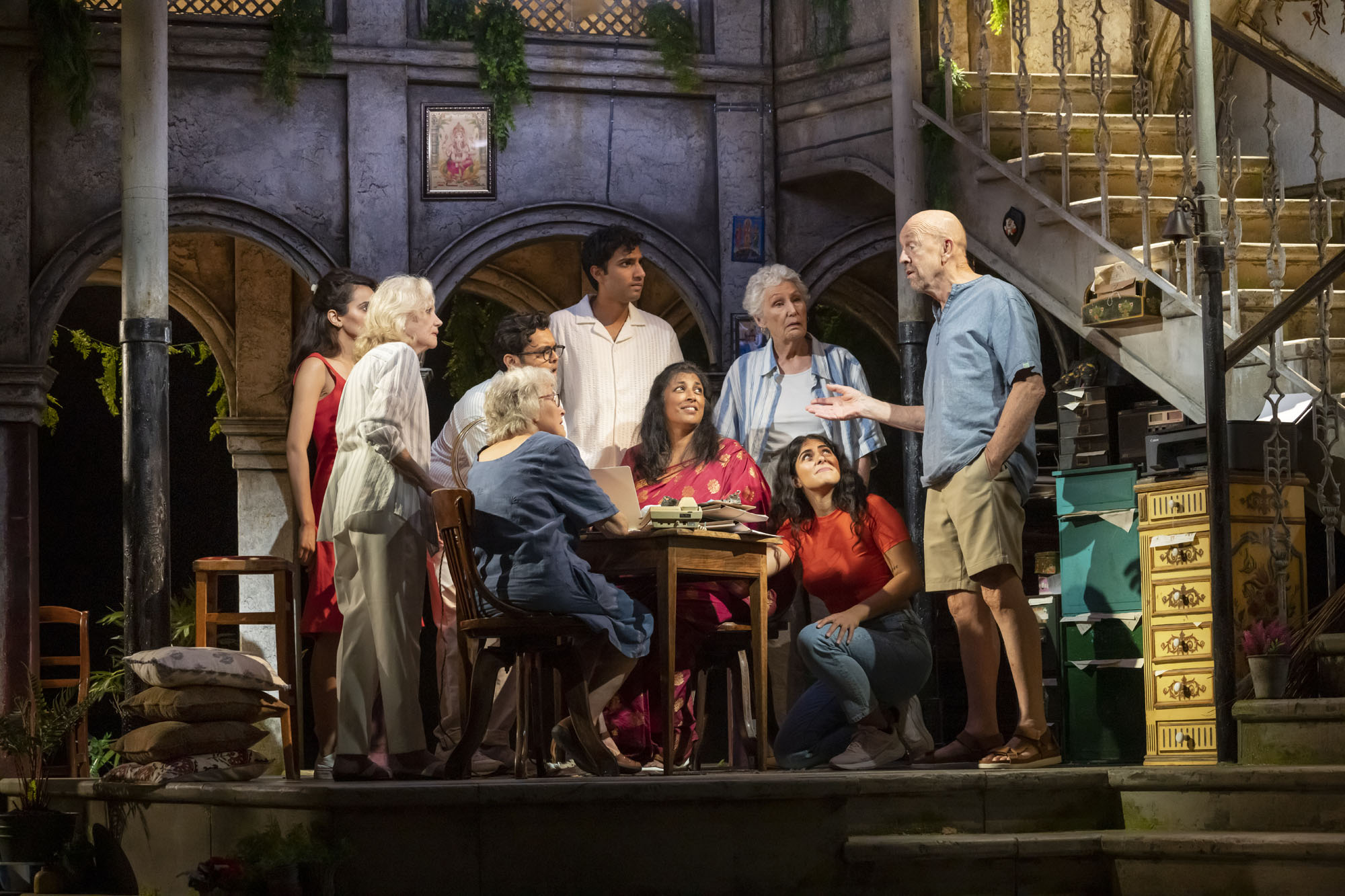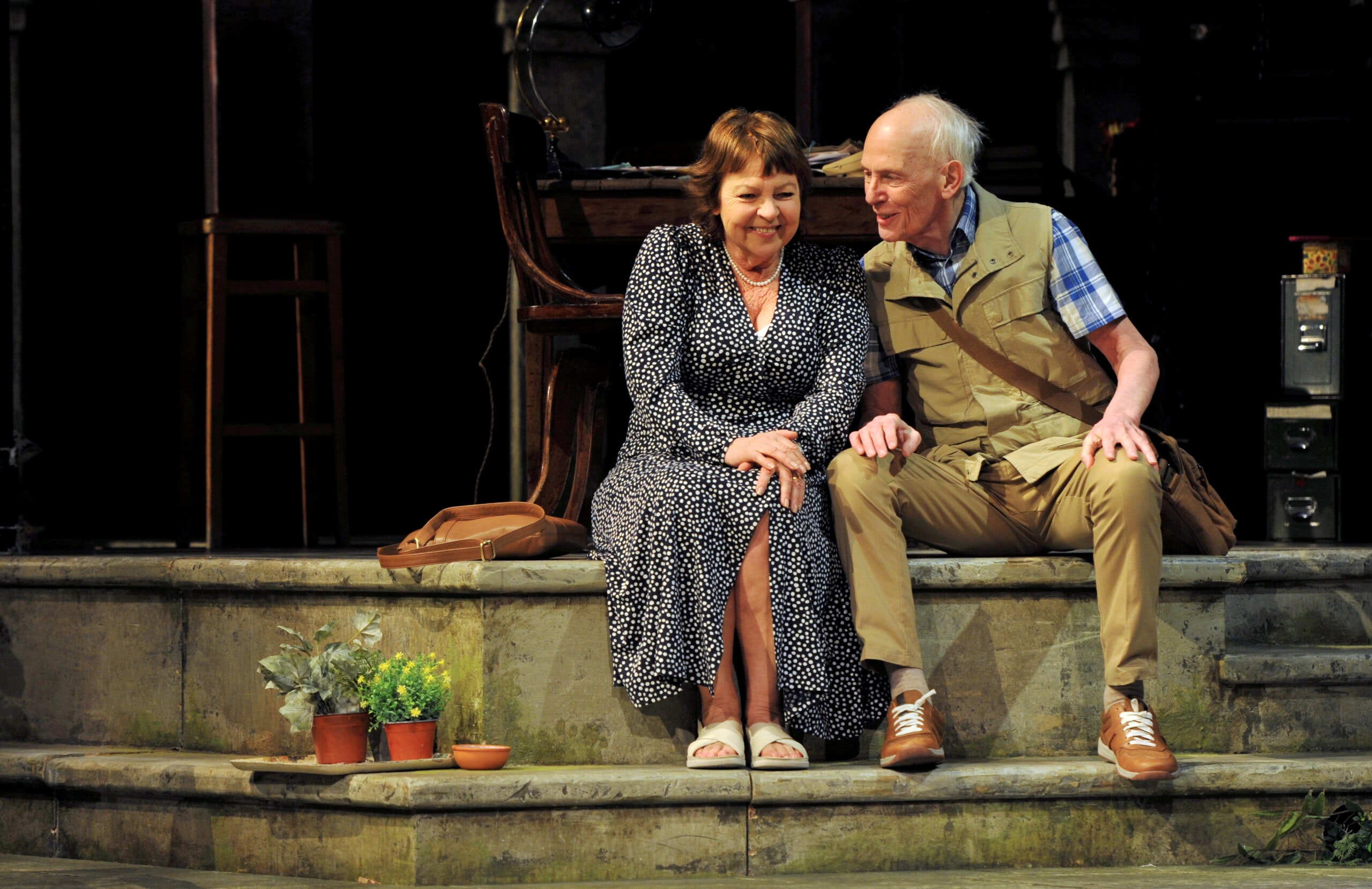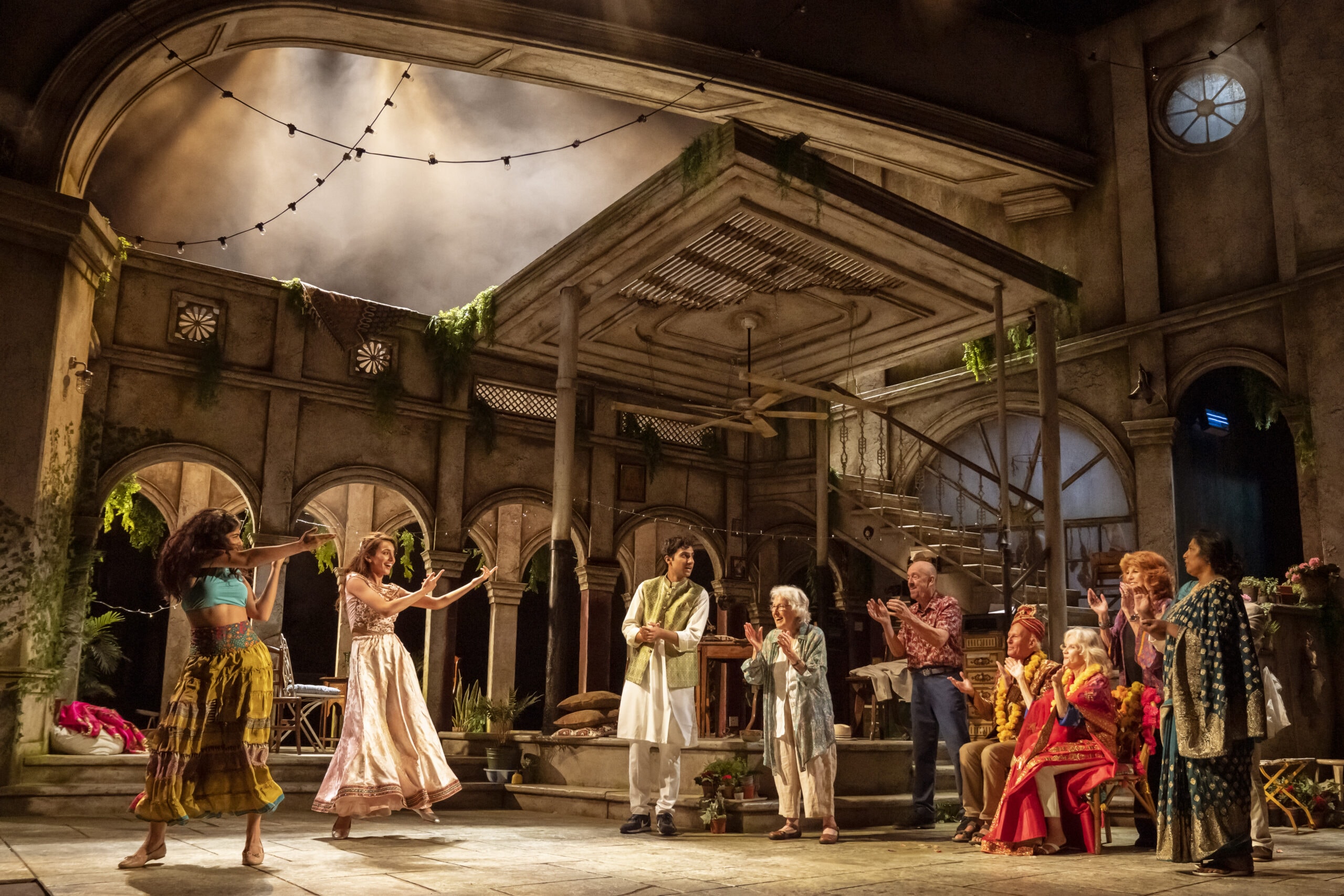Ahead of The Best Exotic Marigold Hotel brightening up our stage from Tues 13 - Sat 17 June, we sat down with award-winning writer Deborah Moggach to get the inside scoop before you watch the show.
Based on the Sunday Times bestseller which inspired one of this century’s most treasured films, The Best Exotic Marigold Hotel takes us on a journey to India with an eclectic group of British retirees as they embark on a new life.
We caught up with writer Deborah Moggach to tell us more about this joyous comedy about taking risks, finding love and embracing second chances, even in the most surprising of places.
What can audiences expect when they come to see the show?
I hope they’ll have a lot of fun and identify things in the play that they’re experiencing or have experienced themselves, then go away happier and uplifted. Hopefully they’ll be full of vim about maybe having another adventure.
Are there surprises in store for people who know your book These Foolish Things and the film based on it?
Oh yes, there are. I’ve adapted it from the novel and it’s quite a different creature to both the book and the film. There are the same characters, the same dilapidated hotel and all of that, but it’s a very different experience on stage.

Did adapting it for theatre present any challenges?
The biggest challenge is getting people on and off the stage because of course with a book or a film you don’t have that problem. The stagecraft is something I’ve had to work on, thinking ‘How do we keep everything in one place?’ They’ve built this amazing set for the hotel and downstage will be the street and call centre. And there’s a lovely sound system featuring the sounds of India strumming in the background, with cars hooting in the distance and people selling their wares, and that will come to the fore sometimes.
You’ve done many adaptations of your own work for TV and film as well as that of other authors but is this your first time penning a play?
I did an original play called Double Take many years ago but usually I adapt my own things as well as other people’s work for the screen rather than the stage. The lovely thing about doing it is that you’re much more involved with the actors and with the process. With television and certainly with film it’s less so.
How is it collaborating with director Lucy Bailey?
I completely love her. She’s incredibly imaginative and also terribly empathetic and sympathetic. She really understands actors and she has no side. She doesn’t tell anyone what to do, she enables them to create the characters themselves. She’s got a very light touch, which I love, and she’s a lot of fun.

You must also be thrilled with the top-notch cast…
Oh, I adore them. I love them all! With the Indian cast, I didn’t know any of their work so they’ve been a new adventure for me. It’s been very interesting working with them because, for instance, one of two of them have renamed themselves. I had too many North Indian Punjabi names for people so I said to them ‘Think up another name for yourselves’. We’ve worked on their identities together, which has been very magical. Then with the older cast, they bring the huge hinterland of their experience. They’ve lived and worked for quite a long time, so you’ve got that richness in their performances because they’re not new to the world. They’ve been around the block a few times.
What are the key themes of the piece that you’re keen to get over in the play?
It’s the same as what I wanted to get over in the book in the way it’s never too late to have another adventure. 70 is the new 50 and we’re not behaving in the way people used to behave when they were so-called ‘old’. There’s been a sea change in how we view older people in that you’re not old, you’re the same person you always were. You have the same loves, disappointments, resentments and joy as you ever had, you’re just a bit more wrinkly. Parcelling them off as old people, which is what I used to do when I was young, is not the case once you get old yourself. You’re exactly the same and I wanted to write something that wasn’t seeing old age in terms of incipient dementia, death, strokes and everything, which has been the case in the past. I wanted to write something about people who are just like everyone else, they’re just a bit older. The world has changed so much. A lot of us would be dead by now but miracles of modern medicine mean here we still are. I’m living in Kent and swimming every day in the sea with my grandchildren. That’s not what people are supposed to do at this age.

Do you think there are enough stories being told about the older generation?
Since the first Marigold Hotel film I think there are many more. They’re about people who happen to be older but whose stories and adventures need not be about being towards the end of your life. The book changed things a bit and the film changed things hugely, by altering our perception of old age. There’s much more coming out, although there’s still not enough. There are many more examples of older people having interesting things happen to them rather than them being in the waiting room or departure lounge.
Did you ever imagine the characters you first introduced to the world in 2004 would go on to have such longevity?
No, not at all, and the thing is they’ve altered. There I was thinking up Evelyn all those years ago, this demure widow from Chichester, and Norman the randy old goat with his regimental tie and all the other characters. I had no idea that not only would they last this long and be played by all these lovely actors but that they would also change en route because they’ve had different identities. Evelyn was in my head, then she was on the page, then she became Judi Dench and now she’s becoming Hayley Mills. How fascinating is that? Each time she’s behaving slightly differently and different things are happening to her.
You must get asked this all the time but is there a character in the story and play you most relate to?
I’ve got a bit of all of them in me. They’re all part of me because the funny thing about writing characters, novels and plays is that you’re in all of them. In a way I’m not like Evelyn at all, for example, but she speaks things about getting older which I identify with. In the play she talks about how you can remember things that have happened in the far past but not quite recently. She says it’s like putting your hand in a stream to catch minnows and they flicker away. You have to somehow grab them but they’re very elusive and that’s the nature of memory. You kind of have to catch it by surprise to try and remember what happened.
Are you also hoping to attract younger audiences?
I’m longing to get young audiences in and of course an Indian audience. With a lot of the Indian characters I’ve given them bigger stories and one of the themes of the play is the meeting of East and West, the dissipating of prejudice and showing what we have in common along with the contrast between our cultures. To get young people and a diverse audience in would be absolutely great. I hope they’ll have their sympathies enlarged, not just about what they might consider old people who are past it but also about other cultures. It’s about ageing and mortality but it’s also about fun and how we can get on with each other. There are quite a lot of messages hidden in there.
The Best Exotic Marigold Hotel visits the Belgrade from Tues 13 – Sat 17 June. Tickets are available to book here.